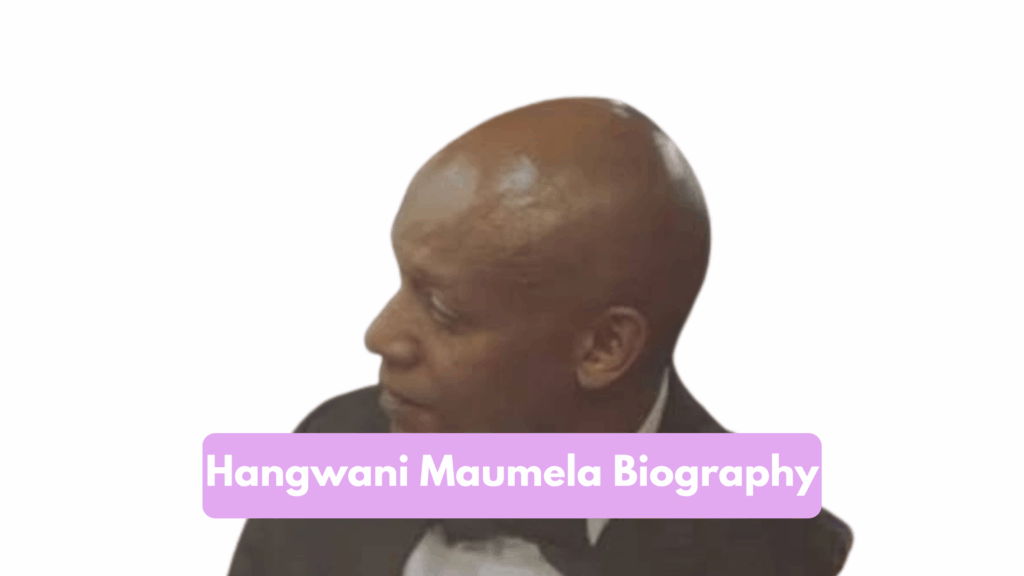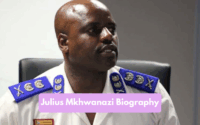Hangwani Maumela Biography: Wife, Children, Age, Net Worth, News

Hangwani Morgan Maumela is a South African businessman who came to broad public attention after media reports and official investigators linked him to large-scale procurement irregularities at Tembisa Hospital and other Gauteng health contracts.
Over the last few years Maumela — described in some reports as a property investor and tender beneficiary — has become a focal point in debates about public procurement, corruption, and asset-tracing in South Africa.
This biography provides a careful, sourced account of his reported background, business activity, the allegations and investigations that have surrounded him, and the wider political and social fallout. Where claims are still under investigation or contested, we use cautious language and cite authoritative reporting or official documents.
Early life and background
Public records and media profiles indicate Hangwani Morgan Maumela was born and raised in South Africa (sources vary on precise birthplace and date), later building a presence in Gauteng’s business and property sectors. Local reporting places his family origins around Limpopo/Venda and Johannesburg areas in available profiles, and describes a trajectory from small business interests into property and service contracts. Many of the personal details commonly repeated in online biographies (exact birthdate, schooling) are not consistently documented in high-quality primary sources, so public accounts draw mainly from investigative reporting and company/asset records assembled by journalists and investigators.
Business activities and portfolio
Maumela is reported to have been involved in property investment, companies providing services to public institutions, and a network of firms that won multiple municipal and provincial service contracts. Media investigations and government reviews have catalogued property purchases, company structures and payments to companies linked to Maumela and associates. Sources emphasize that much of what is publicly known about his business interests derives from investigative journalism and procurement audits rather than a single consolidated company profile.
Tembisa Hospital procurement allegations and investigations
The most consequential public claims about Maumela relate to procurement at Tembisa Hospital and other Gauteng health facilities. Investigative reporting and follow-up official reviews alleged that a network of companies — sometimes described in the press as the “Maumela Syndicate” — benefited from irregular contracts and payments connected to hospital procurement, to the value of many hundreds of millions of rand. Those reports prompted investigations by the Special Investigating Unit (SIU) and other oversight bodies. The SIU released an interim report describing irregularities and fraudulent activities uncovered in the probe.
Important: while several news outlets and the SIU have reported on the scale of irregularities and the tracing of contracts and assets, allegations reported in the press are subject to further legal and administrative processes. Being named in media reports or interim investigative documents does not itself constitute a criminal conviction. The SIU’s interim reporting and investigative actions are part of ongoing processes to establish facts and, where appropriate, to seek recoveries or prosecutions.
Public links and political sensitivity
Some reports note Maumela’s familial connection to President Cyril Ramaphosa (a nephew by marriage in reporting), a detail that has amplified public interest and political sensitivity around the investigations. Ramaphosa has publicly denied having ongoing ties to Maumela. Reporting on the family link has been careful to separate allegation from proven fact while noting how the connection has increased scrutiny.
Recent developments and asset tracing
Since the investigative coverage intensified, several articles and official actions have tracked property holdings, vehicle registrations, and company payments linked to Maumela’s network. Media reports in late 2025 and the SIU’s interim report describe ongoing asset-tracing work and potential civil remedies to recover funds; at the same time, some of Maumela’s associated entities have reportedly continued to bid for public contracts — prompting political calls for arrests and stricter enforcement. These developments are part of an unfolding legal and administrative story that remains in progress.
Legal status and public response
As of the latest available reporting, Maumela has been the subject of investigations and strong public criticism, including calls from political groups for his arrest and prosecution. Authorities (the SIU, law enforcement units, and provincial health departments) have a statutory role to pursue evidence, seize assets where appropriate, and take administrative steps to prevent further losses. News reporting indicates several companies linked to Maumela were under review and that the SIU examined many procurement bundles connected to those suppliers. Again, investigations and possible prosecutions take time and require formal legal steps.
Personal life and public image
Media profiles portray Maumela as a private figure outside the spotlight until his companies began to attract attention in connection with hospital contracts. Public interest grew as journalists mapped property purchases and lifestyle indicators (reported luxury vehicles and property investments), which then formed part of broader narratives about public procurement and accountability. He has a family life that the press has generally treated as secondary to the procurement allegations; the balance between private life and public scrutiny remains contested in reporting.
What this means for governance and accountability
The Maumela case (as described in investigative reporting and the SIU’s interim work) has become emblematic for many South Africans of the challenges in public procurement governance: weak controls, proxy companies, and networks that can exploit oversight gaps. The official response — SIU investigations, prosecutorial review and calls for reform — reflect institutional mechanisms aimed at addressing those weaknesses. How successful those mechanisms will be in recovering funds and deterring similar schemes will depend on the outcomes of the ongoing investigations and any prosecutions or civil recoveries that follow.
Frequently Asked Questions (FAQs)
Q: Who is Hangwani Maumela?
A: Hangwani Morgan Maumela is a South African businessman who has been named in media reports and official investigations related to alleged irregular procurement at Tembisa Hospital and other public health contracts.
Q: What is he accused of?
A: Media and investigative reports say companies linked to Maumela benefited from irregular tenders and payments connected to hospital procurement. The SIU’s interim report and journalistic investigations have described irregularities and suspect payment patterns; investigations are ongoing and allegations remain subject to formal legal review.
Q: Is he related to President Cyril Ramaphosa?
A: Some reports identify Maumela as a nephew by marriage to Ramaphosa’s ex-wife; this has been widely reported and has contributed to public interest. President Ramaphosa has denied ongoing ties. Reporting separates familial association (reported) from any claim of direct influence or wrongdoing by the President.
Q: Has anyone been arrested or convicted?
A: As of the latest reports cited here, investigations and official interim reports have been published; prosecutions and arrests depend on law-enforcement and prosecutorial processes. Readers should consult the latest official updates and court records for definitive legal developments.
Q: Where can I find the SIU report?
A: The Special Investigating Unit published an interim report and related statements describing findings in the Tembisa Hospital probe; the SIU’s official release is available through government communication channels.
Conclusion
Hangwani Maumela’s public profile shifted dramatically as investigative journalists and government investigators uncovered patterns of procurement that raised alarm about corruption risks in health-sector contracting. The story—part biography, part investigation—highlights how personal networks, property holdings and business structures can come under scrutiny when public money is at stake. Because investigations (including the SIU’s work) remain ongoing, it’s important to distinguish reported allegations and interim findings from proven guilt. For readers tracking this matter, authoritative updates from the SIU, reputable investigative outlets and formal court records will provide the most reliable, up-to-date information.


